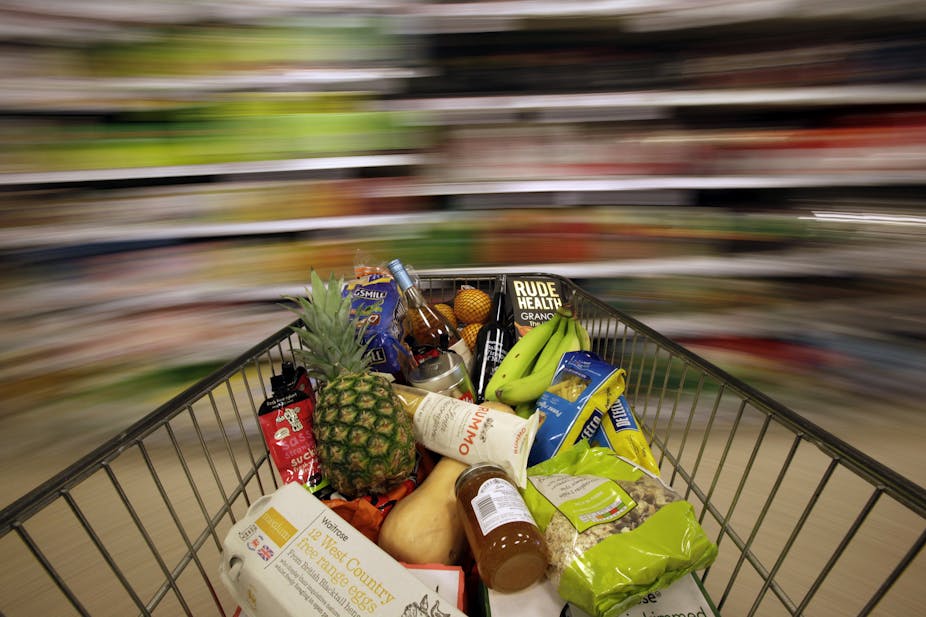It’s a strange world if I can greet with pleasure two reports which actually shame my own country. But alas, it is so. In the UK, two excellent examinations of food poverty have been published just as Westminster is arguing over whether the government’s tax credits cuts are excessively punishing poorer working families. The timing couldn’t be better.
Not only has the House of Lords sent the tax credit legislation back for review, but Tory backbenchers are getting fidgety as the policy bites into their electoral base. These new studies should add to that unease. One is on the national situation from a Fabian Society’s Commission on Food and Poverty; the other is focused on the state of food poverty affairs in London and is written by Sustain, a large alliance of NGOs working on food matters.
The irony is that both come from the voluntary/non-profit sector, the very sector which the state is asking to do its dirty work by setting up food banks to stave off dire hunger.
What the Dickens?
Both the Fabian and Sustain contributions argue that food banks are no solution to food poverty, whether in the rich or poor worlds. They suggest that notions of welfare as a democratic investment of decency – a citizenship bottom line – are being replaced by a neo-Dickensian idea of absolute starvation and modernised charity. This has more than a whiff of the punitive and of humiliation about it – and arguably, that’s the motivation of some, but not all, who favour food banks as a policy instrument. Talking with some food bank volunteers in Wales this year, they told me they are uneasy and wished food banks could be phased out.

A persistent niggle about Food Banks is that they do little to reduce health inequalities. People on low incomes tend to be more overweight and have lower life expectancy. Hardly surprising if cheap, unhealthy foods are targeted at them. It is hugely difficult to juggle the competing costs of living on a low income. Cheap food is a boon when you have a limited budget. The trouble is, it then slowly adds to your risk of ill-health.
That’s why the modern Fabians support the development of a pilot tax on sugary drinks, as recommended by the British Medical Association and want more heat to be applied to the “self-regulation” of the advertising industry, as powerful a bloc as exists in Britain today.
Rightly, the Fabian Commission also recognises that food banks and poverty are also indicators of policy failure. It wants a new cross-departmental minister with responsibility for eliminating household food insecurity in the UK. I would go further, arguing that we actually need a decent food policy which addresses problems at source rather than offering inadequate short-term sticking plaster.
Food 2030
There were moves in that direction in the last three years of the Labour government (2007-10), culminating in the Food 2030 strategy. It was a period of rapid policy development, catalysed by the banking and food price crises.
Back then, rich economies realised that they needed to get their food act together – and some serious thinking followed. The Cabinet Office encouraged UK food plc to focus on building a food system which was low carbon and healthy. Not either/or, but both.
New global and national food security indicators were developed to deliver this commitment to a joined-up food policy. The mess of public nutrition was to be recalibrated by reforming guidelines to promote sustainable diets, and new advice for the public, linking health and the environment, began to be developed.
Shamefully, this leap forward was all quickly swept away by the new government in 2010. No announcements. Just dropped.
Against the grain
Today, if there is a UK food policy it is focused on how to sell more “British” foods to foreigners and a dream about hi-tech solutions. Why? Because the UK’s import bill is steadily rising, and the food manufacturing sector is the largest manufacturing sector left in Britain.
The UK food trade gap is now £21 billion in the red. And the Government’s response is not to grow more food here for ourselves, but to flog more of our processed products abroad. This is a vision of the UK as food trader, not the home of a sustainable food system. It ignores the fact that diet already has huge health and environmental costs, and reinforces rather than prevents the current mismatch of bodies, needs and supply.

Why is Britain being locked into a stupid policy? It all goes back to the British love affair with something known as the “cheap food policy”. This default UK position began to take shape in the 1840s with the fierce battle between landed, financial and industrial interests over food trade tariffs. The industrialists won. They wanted cheaper, imported food for their low-wage industrial workers. We are now seeing that legacy unravel.
You see, ultra-cheap food isn’t really cheap – at least not for the country. It leads to higher rates of non-communicable disease. It has unleashed a flood of non-food foods, foods that are ultra-processed, salty, sugary and fatty.
The latest Global Burden of Disease study suggests that diet accounts for about a third of all risk factors for premature death and morbidity world wide. Here, that burden is accelerated by unprecedentedly cheap food, by firms circling schools, and by voracious marketing aimed at netting new customers as young children and pushing us towards a permanently eating society.
Crude charity
The result is an expensive National Health Service, lost quality of life, and public health advocates who are as angry and outraged by the ignorance or weakness of the political classes as I have ever known them to be. This is neither civilised nor efficient and we need to be able to measure our progress towards a way out from it.
The situation is complex, but also clear. It has taken decades to get into this mess, where obesity and hunger co-exist, where rich societies return to crude and inefficient charity to paper over the food cracks, and where the food system provides enough food for everyone but then fails to share it, while adding to societal and eco-system damage.
The good thing is that the charitable sector which the government is using to offer sticking plaster is now increasingly saying that the solution won’t work. It’s right to cry foul. UK food policy requires a major rethink. A more civilised food economy would be one which ushered in the demise of the food bank.

